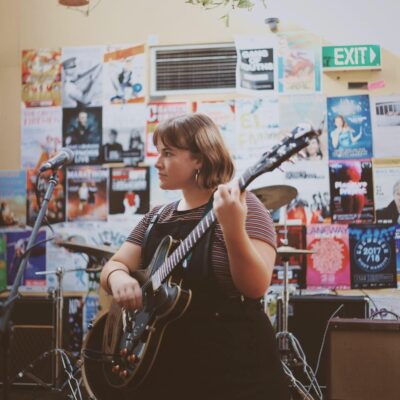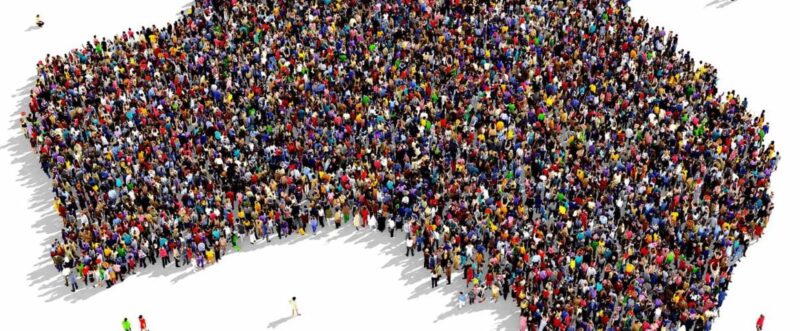Is the Australian Government doing enough to platform Australian musicians?
In January 2023, the ARIA charts for 2022 were released, with only five Australian singles making it into the Top 10 for the whole of that year.
Based on data collected from a combination of physical and digital retailers, and music-streaming services, ARIA tout themselves as “the only aggregator that represents the wide spectrum of how music is consumed in Australia, and a trusted weekly barometer of what’s popular in music right now.”
So why is Australian music so drastically underrepresented?
Of the five singles that made it into the Top 10, one was by Japanese born artist Joji (whose father is Australian), another featured Justin Bieber and two were covers. Only 20 homegrown hits made the Top 40, down from 23 in 2021 and 26 in 2020.
It also followed drops in the album charts (56 Australian albums hit the Top 10 in 2022), with Midnight Oil releasing a statement when their album Resist debuted at number one, bemoaning the fact that they and INXS were among only five Aussie acts in that week’s Top 40.
In a statement issued on their website, the band wrote:
“Thanks to everyone who’s supported RESIST – we greatly appreciate it – but we’re shocked that INXS and ourselves are among only five Australian Artists with top 40 albums this week. What year is it again? We’ve been fortunate to have some great media support, particularly from the ABC and Triple M, but clearly the federal government needs to introduce better local content rules – and better enforcement of those rules – across all platforms to make sure that the next generation of local artists get a fair go.”
Peter Everett and crew aren’t the only ones calling on the government to invest in the next generation of Australian musicians. In an op ed for the Sydney Morning Herald on the Albanese government’s establishment of Music Australia, vocalist and Chair of the Australasian Performing Right Association Jenny Morris applauded the Prime Minister’s investment into our music scene.
In the article she outlined the importance of holistic government investment into the industry, while warning of the dire consequences if that support should fall away.
She wrote, “The alternative is that this generation of kids grows up not knowing the sound of their own country. We are already the world’s ninth-largest music market. The question is: what do we want to be listening to? The possibilities for our industry are enormous, but we really do need to put our shoulder to the wheel and invest in the creativity of the next generation.”
At the launch the Music Australia (a part of the Albanese governments five year Revive plan) earlier in the year, Minister for the Arts Tony Burke MP also referenced the lack of homegrown talent on the current ARIA charts, stating, “Every other band is music that, yep, is popular but isn’t our soundtrack. We want to make sure that the soundtrack to life in Australia has Australian music and Australian stories out there for every single beat.”

South Australian singer-songwriter, Jess Johns has been devotedly working as a musician for the past seven years, and estimates that she has invested “thousands” of her own dollars into her career.
She says that artists are still coming up against the misconception that their practice is a hobby, rather than a viable career.
“The arts are usually seen as a hobby or a pastime and not necessarily something to take seriously. Not a career or a trade, if you will, that people work hard at over many years,” says Johns.
“It’s definitely a struggle to be able to create and then in order for others to consume it, you have to go out and play or record it and put it on the internet. And that is really hard to do when you need to work a whole other job or other jobs, plural, just to be able to fund yourself, to create this thing.”
This struggle is at the forefront of the minds working to elevate the profile of Australian music here, and abroad.
In an op ed for The Music Network, APRA AMCOS’ Dean Ormston said that the next decade would make or break music in Australia.
He wrote, “The next ten years will be critical if Australia is to realise future job creation and build skills in music – one of the fastest growing global industries at the forefront of cultural expression, community building, innovation, and economic growth.”
For Jess, the government has a very important role in platforming the next generation of home grown talent.
“I know of so many fantastic Australian artists that make incredible music worthy of being listened too,” says Johns.
“I guess if I look back at every obstacle that I came up against when trying to create and release music, the biggest hurdle is money. So from a government perspective, just providing funding for artists to create and to release music and then having standards and regulations around radio stations or international touring artists that helps to platform local talent is really important.”
We reached out for a comment from the Music Development Office and the Minister for the Arts for this article, but they were unable to respond before the deadline.




